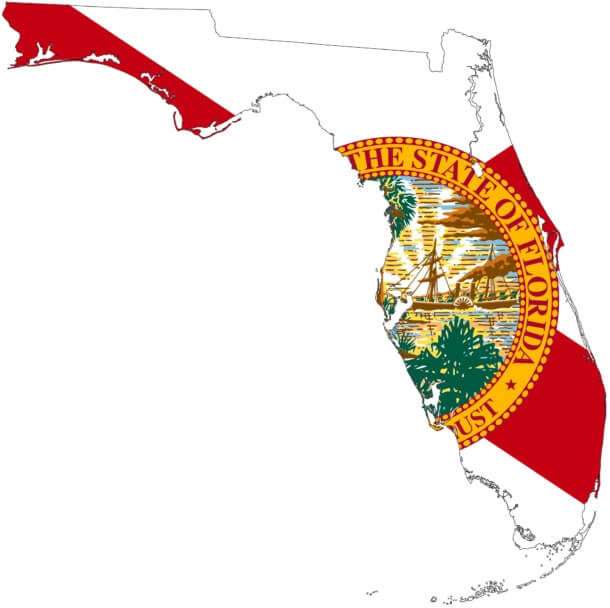Authored by Andrew Korybko via Oriental Review,
Catalonia’s drive for “independence” has unleashed a chain reaction of viral social media support that’s frighteningly resurrected civil war-era rhetoric, but the most dangerous consequences of this domino effect are yet to come if the separatists are ultimately successful in their quest.
The Nostalgia Narrative
The Catalan “independence” cause has taken the world by storm, thrown into the global spotlight by the heavily publicized referendum earlier this week and Madrid’s forceful response to this unconstitutional measure. Supporters all across the world have been energized by the recent events and have taken to describing them in civil war-era terms as a battle between “democracy” and “fascism”. Furthermore, they also accuse the Rajoy government of being “Francoists”, as they do the country’s post-Franco 1978 Constitution which returned Catalonia’s autonomy in an even more robust way than before and even bestowed this privilege to the rest of the country as well.
Although it can be safely presumed that Spain naturally retained some of the “Francoist” members of its permanent military, intelligence, and diplomatic bureaucracies (“deep state”) after the death of their movement’s eponymous leader, it’s an exaggeration to refer to the constitution and the present government as “Francoists” in the sense of what the term stereotypically implies. Rather, the improper use of such polarizing civil war-era terms demonstrates that the separatists are trying to capitalize on the revolutionary nostalgia that their domestic and foreign supporters have for reliving the 1936-1939 anarcho-communist experiment via a simulacrum, one which plays out differently depending on their audience.
Two Simulacra
As it relates to the Catalans themselves, this is meant to force them into the false binary choice between “standing with their ancestors against fascism” or “betraying their motherland for the Francoists”. Concerning the foreign supporters of the Catalan separatists, they’re supposed to get riled up and vent their hatred against Madrid and impassioned support for Barcelona all throughout social media, picking up on the cue that they should inaccurately compare modern-day Madrid to post-Maidan Kiev in making the Alt-Media argument that Catalonia has as much of a right to “independence” as Crimea does to its reunification with Russia.
This is a false equivocation, the full debunking of which isn’t the focus of this article however, as it’s important enough in this context to draw attention to the polemical chain reaction that’s being spun by the separatists and their supporters in crafting a self-interested narrative for serving their cause. There are many well-intentioned individuals who are standing behind Barcelona, so it’s not at all to infer that most of them don’t sincerely believe in this interpretation of events, but the point here is just to highlight how Catalonia’s “independence” crusade is exploiting historical memory and revolutionary nostalgia in order to advance its organizers’ argument that the region needs to split from Spain.
Spanish Scenarios
Centralized Crackdown:
While most people might be led to think that the Catalan Crisis is solely between Barcelona and Madrid, the fact is that it actually involves all of Spain and is poised to have geopolitical reverberations throughout the entirety of Europe. Concerning the politically unstable Iberian country, Catalonia’s separatist campaign already crossed the Rubicon of no return after the referendum and Madrid’s reaction to it, so there’s no going back to the previous status quo. This means that only three scenarios are probable: a centralized crackdown, Identity Federalism, and separatism. The first one could see the state implement Article 155 of the constitution in temporarily imposing direct rule over the region, though with the expected consequence being that it might catalyze a low-scale civil war if the Catalans resort to terrorist-insurgent tactics to resist.
Identity Federalism:
The next scenario is Identity Federalism, which would require the revocation or reform of Article 145 in devolving the centralized state into a federation or confederation of regions, each of which could theoretically function as quasi-independent statelets with their own economic, military, and foreign policies. Essentially, this would be the transplantation of the Bosnian model onto Spain, albeit with added privileges given to each constituent member. As with the centralized crackdown scenario, this is likely to lead to violence, and would probably only occur as a “compromise solution” to any prolonged conflict. Madrid does not want to lose control of the country and see the Iberian Peninsula in southwestern Europe “Balkanized” like its namesake counterpart in Southeastern Europe, which is why this outcome probably wouldn’t ever happen in peacetime.
Secessionism:
Finally, the last possibility for how the Catalan Crisis could play out is that the restive region becomes “independent” from Spain and is recognized by at least one country or more, which in all likelihood might end up being some of the Baltic and/or Balkan states before anyone else. Spain wouldn’t be able to survive in its present administrative-political format with the loss of roughly 20% of its GDP, so the rump state would either have to be radically reformed, undergo a “stabilizing” military coup, or fully collapse in a collection of “countries” just like the former Yugoslavia did a generation ago. As for Catalonia, it could become a base for foreign (NATO/Western/American) intervention into what might then descend into a multisided civil war. A weakened Spain or its remnants also wouldn’t be able to defend from an African-originating “Weapons of Mass Migration” tidal wave into Europe, either.
Geopolitical Chain Reactions
Forecasting is never an exact science, but it is indeed an art, and with that being said, there’s no guarantee that any of the aforementioned scenarios will play out, though if they do, they’ll inevitably have very serious geopolitical ramifications which could end up sparking a chain reaction throughout the region and beyond. The centralized crackdown might lead to a civil war that could either be contained to Catalonia or come to engulf other traditionally sovereign-minded areas such as Basque Country or Galicia too, to say nothing of the rest of the country in general. That said, and accepting that the consequences would inevitably spread to at least Portugal and France as well with time, this sequence of events isn’t what’s the most continentally explosive, as it’s the scenarios of Identity Federalism and “independence” that are the most dangerous.
The “Catalan Countries”:
Before going any further, both of these would guarantee that the Catalan Crisis becomes an existential one for Spain. The nominal Kingdom can’t devolve into a federation without changing the constitution, and even if this unlikely event were to happen, then Catalonia might seek to rearrange the country’s internal boundaries in a nationalist bid to gobble up the territory that its most jingoistic supporters claim as constituting the “Catalan countries”. This ultra-extreme concept holds that the modern-day borders of Catalonia don’t represent the historic geo-cultural space of the Catalan people, so they therefore need to be expanded to include all or some of the Spanish regions of Aragon, the Balearic Islands, and Valencia, as well as the country of Andorra and the French department of Pyrénées-Orientales (also known as “Roussillon” or “Northern/French Catalonia”).
Most of the people in these areas don’t want to be part of a “Greater Catalonia”, but the hyper-nationalists in charge of the Identity Federalized or “independent” state might resort to subterfuge or force in pressing their claims, even if they don’t do so right away. The concept of the “Catalan countries” is therefore a very dangerous one because it means that the Catalonia issue will inevitably have pronounced internal geopolitical consequences for Spain and also possibly even France as well if the separatists in control of Barcelona right now eventually get their way. Again, the Identity Federalism scenario would likely only result from a war brought about by a centralized crackdown, and would represent a (temporary) “compromise solution” to outright separatism, though with the latent dangers that would come from the latter with time.
Continue: The Catalan Chain Reaction | Zero Hedge




